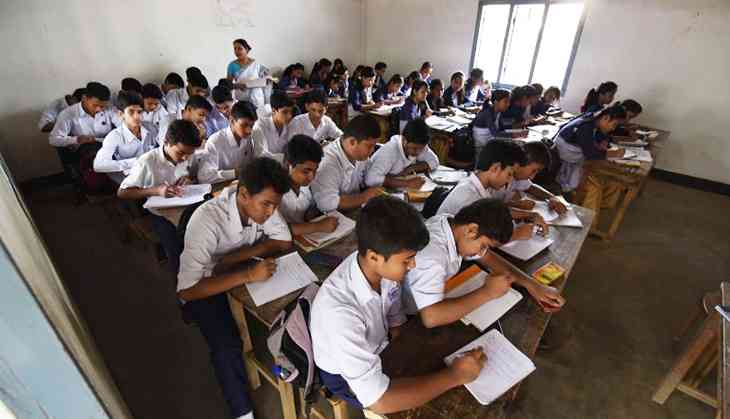
Shiksha mitras or contractual teachers appointed in Uttar Pradesh's government schools will soon be struggling to find employment. The Supreme Court recently cancelled their upgradation to the post of assistant teachers, and has given them two years to pass the Teachers Eligibility Test (TET) in order to continue on the upgraded pay scale.
Till they do not clear TET, the shiksha mitras will continue to get their old salary as per the old terms.
In 2010, with the implementation of Right to Education (RTE) Act, the state government hired shiksha mitras or contractual teachers to assistant in government schools to curb the shortfall of teachers in cities and villages for a retainer fee of Rs 2,250.
In 2015 they were all upgraded to the post of assistant teachers with a pay scale of Rs 39,000.
The shiksha mitras, who were to assist primary school teachers, were supposed to have basic training certificates like the TET and their positions were to be regularised by 2015 – according to a deadline set by the government for the implementation of RTE.
In 2015, 1.67 lakh contractual teachers were 'upgraded' to assistant teachers in the state's educational system.
However, in September 2015, the Allahabad High Court declared these 'upgraded' appointments invalid suggesting that many do not have the pre-requisite qualifications, as laid down by the Centre under the Right of Children to Free and Compulsory Education Act, to work as teachers.
The court alleged that the upgraded teachers were not qualified enough to become assistant teachers as most of them had not cleared the TET or the National Eligibility Test (NET).
The Supreme Court had stayed the high court order's implementation initially, but on Tuesday it also decided against the adjustment of shiksha mitras as assistant teachers.
The bench stated –
“On the one hand, we have the claim of 1.78 lakhs persons to be regularized in violation of law, on the other hand is the duty to uphold the rule of law and also to have regard to the right of children in the age of 6 to 14 years to receive quality education from duly qualified teachers. Thus, even if for a stop gap arrangement teaching may be by unqualified teachers, qualified teachers have to be ultimately appointed. It may be permissible to give some weightage to the experience of Shiksha Mitras or some age relaxation may be possible, mandatory qualifications cannot be dispensed with. Regularization of Shiksha Mitras as teachers was not permissible.”
For now, the bench headed by Justices AK Goel and UU Lalit said that the shiksha mitras should be given the opportunity to be considered for recruitment as teachers if they have by now acquired the requisite qualification.
“The deadline set by the government for training and regularisation of contractual teachers clearly said that by 2015 the teachers must have passed the Teachers Eligibility Test (TET) or the National Eligibility Test (NET). In Uttar Pradesh, these teachers were upgraded even without having passed these tests. The High Court and Supreme Court are right in withholding their upgradation unless they pass the test. The quality of contractual teachers in Uttar Pradesh and the rest of the country isn't very good since the criteria for becoming contractual teachers is just to clear graduation,” RTE national convenor Ambarish Rai told Catch.
“There is a massive dearth of teachers in India, there are nine lakh vacancies for teachers in government schools across the country. The pupil teacher ratio in government schools is abysmal. To address the dearth of teachers, what state governments do is hire untrained teachers on a contractual basis on very low salaries. But I appreciate that the Supreme Court does not want to make compromises on the quality of teaching professionals. Once they clear the tests, they can be made permanent teachers. It is a logical step,” Rai explained.
Following the ruling, shiksha mitras all over the state decided to boycott classes.
“The decision is indeed unfortunate and the lives of 1.67 shikha mitras is hanging by a thread. We have decided to file another plea with the apex court. UP government must make a provision to ensure that the career of shiksha mitras is not adversely affected,” the head of the Shiksha Mitra Welfare Association, Jitendra Shahi told ANI.
Meanwhile, a India Today report suggested that a 36-year-old shiksha mitra Gayatri Devi, a resident of Mathura district in Agra division, committed suicide by consuming poison after reading about the Supreme Court order.



